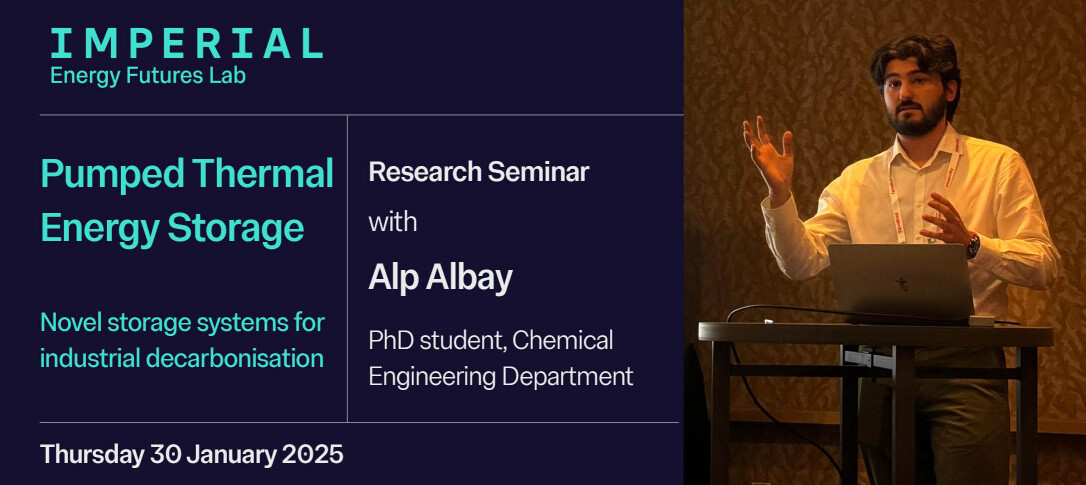
Pumped Thermal Energy Storage
Novel storage systems for industrial decarbonisation
The energy transition introduces challenges for existing power infrastructure, particularly in areas of energy supply-demand imbalances and value stacking opportunities, such as grid inertia and cogeneration. As these challenges are primarily met through fossil fuel-based solutions, renewable alternatives are required.
Renewable energy sources, like wind and solar, are inherently intermittent and predominantly electricity-only, lacking options for thermal and mechanical energy supply capabilities offered by fossil fuels. While the intermittency issue can be counteracted with most large-scale energy storage technologies, the second challenge of supplying grid utility requires a diverse arsenal of technologies. When it is considered that heat usage accounts for nearly half of global energy use but is only minimally served by renewables this requirement is underscored. To bridge this gap, electrification of heat is critical, which will enable further adoption of renewables.
Pumped Thermal Energy Storage systems can address both challenges. Working as heat pumps when charging and heat engines when discharging, they can store and retrieve energy from a thermal reservoir. They provide an avenue for converting and storing renewable energy in more diverse areas. With PTES systems, very high temperature processes can be electrified, and renewable energy can turn into a multi-vector energy source.
Speaker
Alp Albay is a third year PhD student in the Chemical Engineering Department, working with Dr Mehmet Mercangoz. Prior to this, he studied Chemical and Biomolecular Engineering and Applied Mathematics at Johns Hopkins University in Baltimore, Maryland and he earned his MSc in the Imperial College London Chemical Engineering Department. His research experience is on modelling, control and optimization of processes for industrial decarbonization applications.
About Energy Futures Lab
Energy Futures Lab is one of seven Global Institutes at Imperial College London. The institute was established to address global energy challenges by identifying and leading new opportunities to serve industry, government and society at large through high quality research, evidence and advocacy for positive change. The institute aims to promote energy innovation and advance systemic solutions for a sustainable energy future by bringing together the science, engineering and policy expertise at Imperial and fostering collaboration with a wide variety of external partners.